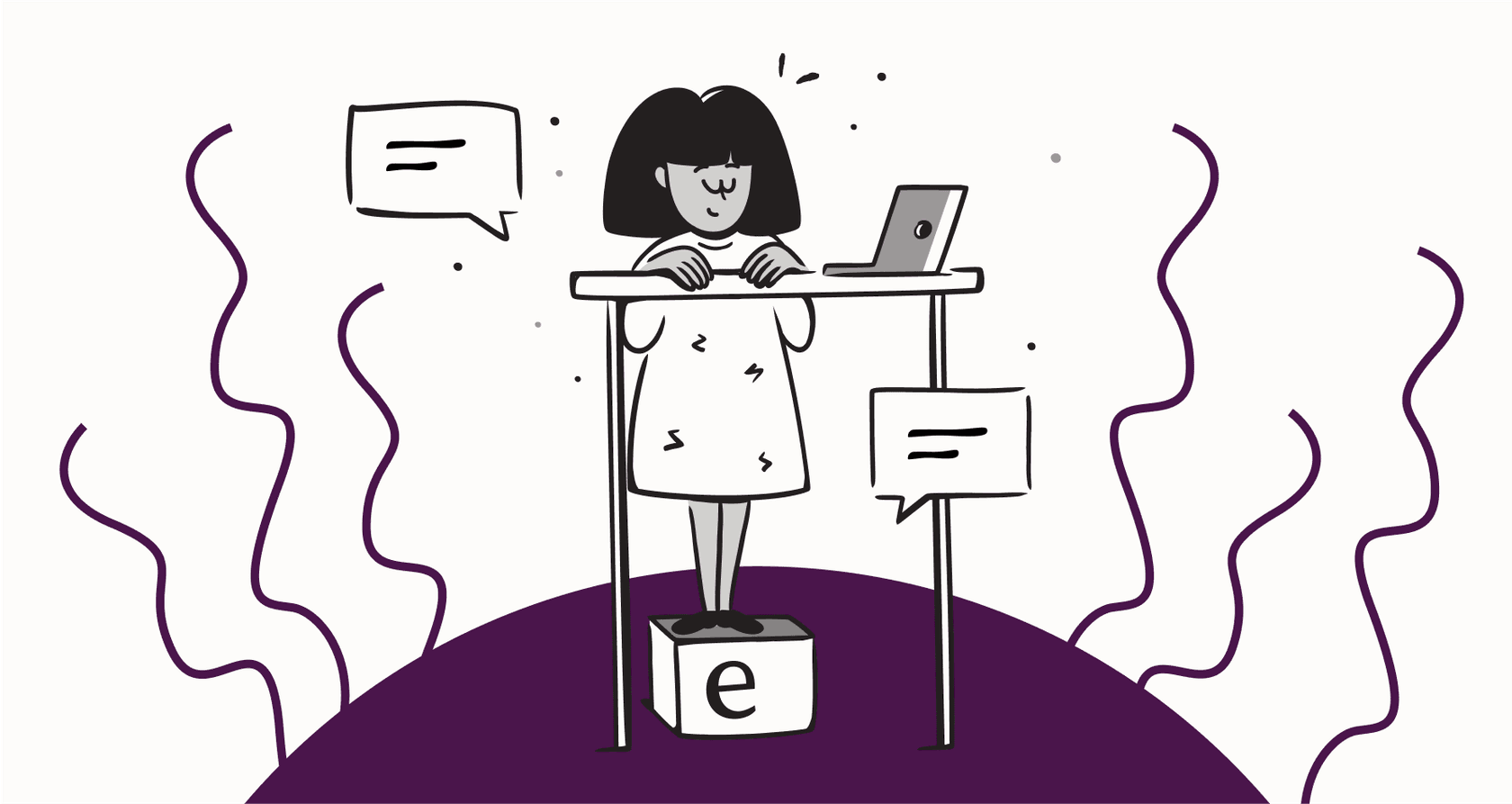The 5 best Watson AI alternatives for customer service in 2025

Stevia Putri
Last edited September 16, 2025

IBM Watson has been a huge name in enterprise AI for a long time. It was one of the first on the scene, and for a while, it was the aonly game in town. But let’s be real, the AI world looks completely different now. Businesses move fast, and they need tools that can keep pace.
Many support teams are finding that the old guard of enterprise AI platforms comes with a lot of baggage. We’re talking about long, drawn-out implementation projects, a constant need for developers to make small tweaks, and pricing models that feel like they require a PhD to understand.
If any of that sounds painfully familiar, you’re in the right place. We’ve put together a list of the top Watson AI alternatives built for how modern teams actually work. These are platforms you can set up yourself, connect to your existing tools with a few clicks, and start getting value from almost immediately.
What is IBM Watson AI and why are people looking for Watson AI alternatives?
At its heart, IBM Watson Assistant is a platform for building AI-powered chatbots. It’s known for having a powerful grasp of natural language, which lets it handle some pretty complex conversations. For huge corporations with a small army of developers, it can be an impressive tool.
But that power comes with some serious trade-offs, and it’s not just about the price. More and more businesses are looking for Watson AI alternatives because they keep hitting the same walls:
-
It takes forever to get started. A Watson project isn’t something you spin up over a weekend. It often takes months and a dedicated team of developers and data scientists just to get a basic version live. That’s a long time to wait before you see any return on your investment.
-
The total cost is a mystery. The subscription fee is just the starting point. The real cost includes the salaries of the technical staff needed to run it and the resources you burn through during those long development cycles.
-
You can’t make changes yourself. If a support manager wants to update an answer or add a new workflow, they usually have to file a ticket with IT and get in line. This creates frustrating delays and makes it hard to adapt quickly.
-
It doesn’t always play nice with other tools. Trying to connect Watson to modern, cloud-based apps can feel like forcing a square peg into a round hole. It often requires custom development work just to get it talking to the rest of your tech stack.
Our criteria for choosing the best Watson AI alternatives
Before we dive into the list, we wanted to be upfront about how we chose these tools. Our checklist is based on what we hear from support teams every day and reflects what a modern AI platform ought to deliver.
-
Speed to set up: How fast can you actually get it working? We looked for platforms that offer a true self-serve experience, letting you go from signing up to having a live AI in minutes, not months.
-
Plays well with others: Does it connect to the tools you already use? The best alternatives should seamlessly link up with help desks like Zendesk and Freshdesk, plus all the knowledge you have stored in places like Confluence or Google Docs.
-
You’re in control: Can you make the AI sound like your brand? We prioritized tools that let you define the AI’s personality, restrict its knowledge to certain topics, and build custom actions without having to write code.
-
How it gets smart: We favored solutions that learn from your company’s unique context, like your past support tickets, so they can provide accurate and relevant answers right away.
-
Clear pricing: Can you actually predict what your bill will be? We chose alternatives with straightforward pricing that won’t punish you with surprise per-resolution fees just for having a successful month.
Comparison of the top Watson AI alternatives in 2025
Here’s a quick side-by-side look at the platforms we’ll be covering.
| Tool | Best For | Pricing Model | Key Differentiator | Truly Self-Serve? |
|---|---|---|---|---|
| eesel AI | Teams needing a fast, self-serve, and highly customizable solution | Flat-rate subscription | Go live in minutes & simulate on past tickets | Yes |
| Ultimate | Global enterprises needing advanced multilingual support | Custom Quote | Broad language support | No |
| Forethought | Automating complex ticket triage and workflows | Custom Quote | AI-powered ticket routing | No |
| Ada | Building simple, no-code, guided chatbots | Per Automated Resolution | Intuitive drag-and-drop builder | Yes |
| Google Dialogflow | Developers building custom solutions from scratch | Usage-Based | Powerful NLU toolkit | N/A (Developer Tool) |
The 5 best Watson AI alternatives in 2025
Alright, let’s get into the details of each platform.
1. eesel AI: The best Watson AI alternative for rapid, self-serve implementation
eesel AI is a modern AI platform designed for teams that need to get things done now. It was built to solve the biggest headaches of traditional enterprise AI by offering a refreshingly straightforward, self-serve experience. You can connect your help desk and knowledge sources with one-click integrations and have a fully working AI agent or copilot running in just a few minutes.
-
Pros:
-
Go live in minutes: The setup is genuinely self-serve. You don’t have to schedule a sales demo or wait for someone to onboard you to get started.
-
Risk-free simulation: You can test the AI on thousands of your past tickets to see exactly how it would have performed and what your resolution rate would be before you activate it for live customers. It’s a great way to build confidence.
-
Unified knowledge: It learns from everything you’ve already written, from past tickets and macros to articles in your help center, Confluence pages, and Google Docs. This ensures its answers are always based on your reality.
-
Transparent pricing: You get predictable, flat-rate monthly plans. No weird per-resolution fees that make your bill spike when you have a busy month.
-
Cons:
-
As a newer player, it might not have the same decades-old brand recognition as some of the legacy tools.
-
While the platform is almost entirely no-code, setting up super advanced, custom API actions might benefit from a little technical guidance.
-
Pricing: Plans start at $299/month for the Team plan, which covers up to 1,000 AI interactions.
-
Why it’s a great Watson AI alternative: It’s the polar opposite of Watson’s complexity. eesel AI is all about speed, simplicity, and immediate results, which makes it perfect for teams that want powerful AI without the enterprise-level headaches.
2. Ultimate: A powerful Watson AI alternative for multilingual support
Ultimate is a well-known AI platform in the customer service space. It’s built a strong reputation by focusing on supporting a massive list of languages. It connects deeply with major help desks and is a solid pick for large, global companies that need to support customers in their native tongues.
-
Pros:
-
Excellent support for dozens of languages right out of the box.
-
Comes with a powerful analytics and reporting suite.
-
Cons:
-
The setup process is entirely led by their sales team, so you can expect it to take much longer to get going compared to self-serve options.
-
The pricing isn’t public and is aimed at large enterprises, so it’s probably not the right fit for smaller teams.
-
Pricing: Custom quote only.
-
Why it’s on the list: For huge, global companies where top-notch multilingual support is the absolute top priority, Ultimate is a very strong contender.
3. Forethought: A top Watson AI alternative for workflow automation and triage
Forethought calls itself an "AI-first" platform that helps across the entire support journey. Its most interesting feature is "Triage," which uses AI to automatically route, tag, and prioritize incoming support tickets before an agent ever sees them. Think of it as an AI traffic cop for your support inbox.
-
Pros:
-
Its ability to automate ticket triage and complex workflows is impressive.
-
It integrates deeply into the backend processes of your help desk.
-
Cons:
-
Getting it set up is a bit of a project, and it’s definitely not a self-serve tool. You’ll be working closely with their team to get it running.
-
Like other enterprise tools, the pricing is a black box, and you have to go through their sales team for a quote.
-
Pricing: Custom quote only.
-
Why it’s on the list: If your main problem is a chaotic, disorganized ticket queue, Forethought’s powerful triage features make it a worthy Watson AI alternative.
4. Ada: A user-friendly Watson AI alternative for no-code chatbots
Ada is known for its super intuitive, no-code, drag-and-drop builder. It’s designed so that non-technical folks, like marketers or support managers, can build guided conversational flows for anything from sales to support.
-
Pros:
-
The visual builder is extremely easy to pick up, even if you’ve never built a bot before.
-
It’s great for creating simple, structured chatbot conversations where you guide the user through a set path.
-
Cons:
-
Its pricing model is based on "automated resolutions," which can become unpredictable and expensive as your support volume grows. It’s a model that can penalize you for being successful.
-
It’s less focused on generative AI that learns from messy, unstructured data like your past tickets. This can limit its ability to handle the weird, unexpected questions customers love to ask.
-
Pricing: Based on the number of automated resolutions.
-
Why it’s on the list: For teams that just want to build simple, guided bots quickly without touching any code, Ada is one of the most accessible tools out there.
5. Google Dialogflow: A Watson AI alternative for developers needing a powerful NLU toolkit
Part of the Google Cloud Platform, Dialogflow isn’t a ready-made solution but a powerful box of tools for developers. It gives you access to the same language-understanding engine that powers Google Assistant, letting you build custom conversational experiences from scratch.
-
Pros:
-
It’s backed by Google’s world-class AI research and infrastructure.
-
It offers incredible flexibility for companies with the engineering firepower to use it.
-
Cons:
-
This is a developer tool, plain and simple. You need serious coding and AI skills to build and maintain anything with it.
-
The pricing is complex and usage-based, making it very difficult to forecast your costs.
-
Pricing: Usage-based and tied to your Google Cloud bill.
-
Why it’s on the list: For organizations with a dedicated development team that wants to build a completely custom AI solution, Dialogflow is a true platform-level alternative to Watson.
How to choose the right Watson AI alternatives for your team
Picking the right platform really comes down to what your team needs and the resources you have. Here are a few thoughts to help you decide.
Figure out your biggest headache before choosing a Watson AI alternative
What’s the number one problem you’re hoping AI can solve right now? Are you drowning in repetitive questions? Do you need to get new agents up to to speed faster? Or is your ticket queue just a total mess? If you need something that can handle frontline support with an AI Agent and also help your human team with an AI Copilot, look for a platform that offers both.
Choose speed and agility when selecting a Watson AI alternative
Don’t fall into the trap of thinking a legacy enterprise platform is your only "safe" option. Modern, self-serve tools can often deliver results much faster and are easier to adapt as your needs change. A platform you can launch yourself this week is far more valuable than one that will take six months and a team of consultants to roll out.
This video provides a high-level showdown between major AI platforms, including IBM Watson and Google AI, to help you understand the competitive landscape.
Insist on a risk-free trial or simulation for Watson AI alternatives
A polished sales demo is one thing, but it doesn’t tell you how a tool will perform in the real world. The only way to really know is to test it with your own data. Look for a solution like eesel AI that lets you run a simulation. This unique feature shows you exactly how the AI would have responded to thousands of your real customer tickets, giving you a clear and accurate picture of its performance before you ever spend a dime.
Making the switch from IBM Watson to Watson AI alternatives
The world of AI for customer service has moved past the complex, developer-first platforms of yesterday. Today’s best Watson AI alternatives are all about speed, ease of use, and connecting with the tools you already have.
You no longer need a team of data scientists and a six-month project plan to get powerful AI working for your support team. Platforms like eesel AI are putting control back where it belongs: with the support teams themselves. They let you automate the repetitive stuff and free up your agents to focus on what matters, and you can get it all done in minutes, not months.
Ready to see what a modern, self-serve AI platform can actually do? Sign up for a free trial of eesel AI and see how quickly you can get your customer support on autopilot.
Frequently asked questions
Modern Watson AI alternatives prioritize ease of use and speed of implementation. They often feature self-serve setups and no-code interfaces, allowing business users to manage and update the AI without relying on developers.
Many Watson AI alternatives offer transparent, flat-rate subscription models, avoiding unpredictable per-resolution fees. Look for platforms that clearly publish their pricing or offer predictable tiers to help forecast costs.
Unlike Watson’s often months-long projects, many modern Watson AI alternatives can be set up and go live in minutes or days. They are designed for rapid deployment and immediate value realization.
The best Watson AI alternatives offer seamless, one-click integrations with popular help desks like Zendesk and Freshdesk, as well as knowledge sources like Confluence and Google Docs. This ensures the AI learns from your existing information.
Absolutely. A key differentiator for many Watson AI alternatives is their focus on empowering non-technical users. They provide intuitive interfaces to define AI personality, restrict knowledge, and build custom actions without coding.
Yes, some advanced Watson AI alternatives offer risk-free simulations. Platforms like eesel AI allow you to test the AI on thousands of your past tickets to predict its performance and resolution rate before going live.





